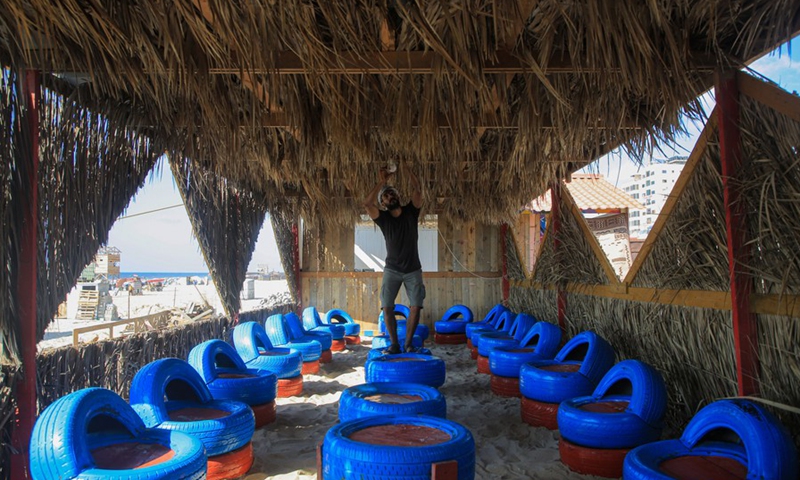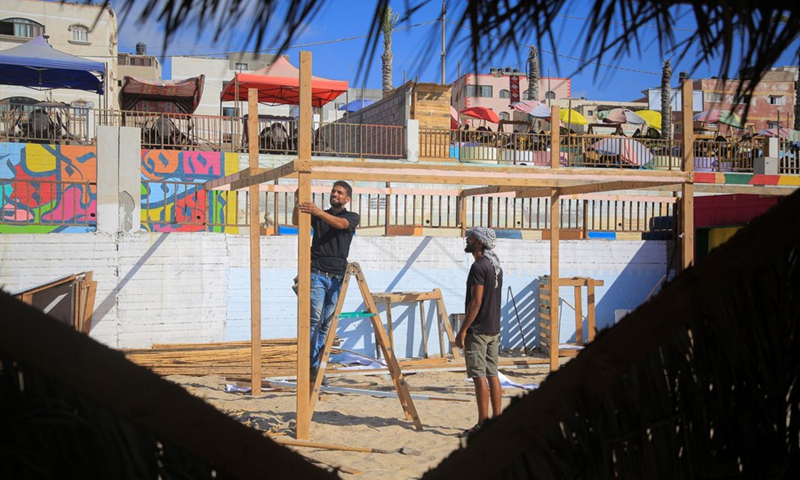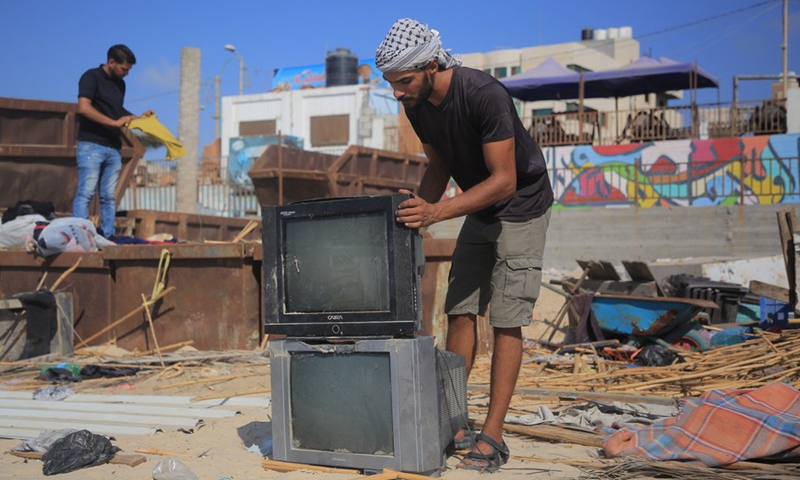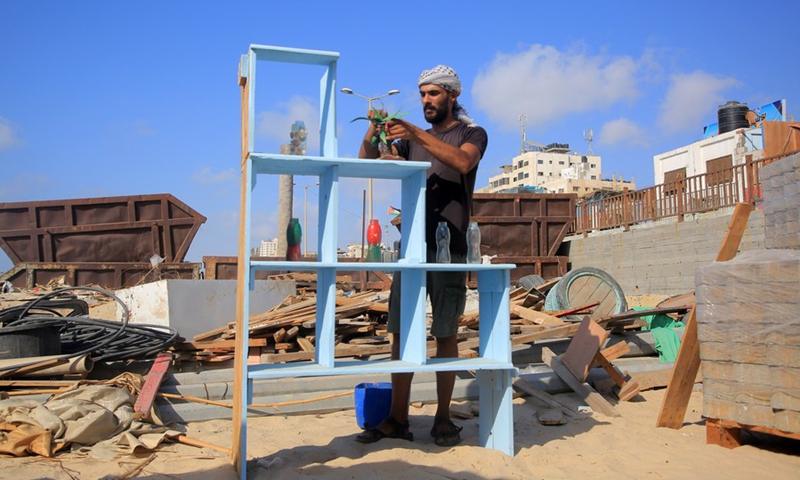
A Palestinian young man is seen working at an eco-friendly cafe on the beach of the Mediterranean Sea in Gaza city on July 28, 2021.(Photo: Xinhua)

Palestinian young men are seen working at an eco-friendly cafe on the beach of the Mediterranean Sea in Gaza city on July 28, 2021.(Photo: Xinhua)

A Palestinian young man is seen working at an eco-friendly cafe on the beach of the Mediterranean Sea in Gaza city on July 28, 2021.(Photo: Xinhua)

A Palestinian young man is seen working at an eco-friendly cafe on the beach of the Mediterranean Sea in Gaza city on July 28, 2021.(Photo: Xinhua)
After weeks of hard work, an eco-friendly cafe, which was built by a group of Palestinian youths from recycled solid waste, has opened recently.
Located on the Gaza City beach, the cafe is the first of such outlets in Gaza that aims at changing people's behavior towards environment at the coastal enclave.
Called "The Sea Is Ours," the project falls under the responsibility of Abdul Muhsin al-Qattan Foundation and the Gaza Municipality. It consists of 20 members, most of whom are artists and activists.
The group recycled about 270 tons of solid waste to build their cafe and the furnitures inside it, including tires, plastic gallons, wooden poles and boxes, refrigerators and washing machines. All were taken from the municipal stores.
Besides being a dining area, the cafe also features a library, a theatre, a hall for special events and various activities.
The organizers say the cafe does not aim at earning money. Rather, it is a way to tell the masses about the environment and how to cope with it.
Hanaa al-Ghoul, one of the initiative organizers, said that "in the summer season, some people go to the sea to relax and enjoy while throwing plastic waste on the beach and in the sea, contaminating the area."
"This is why we have established our non-profit initiative that aims at encouraging people to keep their environment clean and healthy and teaching them how to recycle most of their waste," she added.
"People welcome the idea," said Ali Mohanna, another initiative organizer. To attract more people, they decided to do workshops to teach customers how they can benefit from their own waste.
Furthermore, the organizers also arrange theatrical performances that spread the messages of environment protection and conservation.
Many Gazan families have praised the initiative as they can take their waste to the cafe and learn how they can recycle it into useful things.
Mariam Ibrahim from Gaza City had spent a whole day with her family at the cafe. She told Xinhua that her four children succeeded in producing flower vases from the plastic waste, as well as bags from her old clothes.
"Now, my children and I become more aware of the methods of protecting our environment from the pollution, not only on the beach but also in our house," the 35-year-old mother said.
She expressed her hope that more of such initiatives should be created in the Gaza Strip.
"To be honest, Gaza is the most beautiful area in the world, but it needs people who would take care of it and its environment," said Mariam, as she flashed her smile.
Gaza is suffering from an acute garbage issue. According to a 2018 report by the Palestinian Central Bureau of Statistics, the average household waste in the Gaza Strip stands at 716 tonnes. About 80 percent of the garbage there is organic waste, while 20 percent of it is solid waste.
